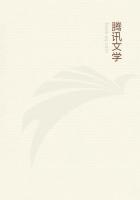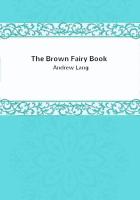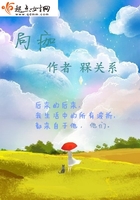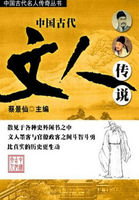Self-disgust and shame are not identical but are so kindred that shame may well be studied here. Shame is lowered self-valuation, brought on by social or self-disapproval. Usually it is acute and, like fear, it tends to make the individual hide or fly. It is based on insight, and there are thus some who are never ashamed, simply because they do not understand disapproval. Shame is essentially a feeling of inferiority, and when we say to a man, "Shame on you," we say, "You have done wrong, humble yourself, be little!" When we say, "I am ashamed of you," we say, "I had pride in you; I enlarged myself through you, and now you make me little." When the community cries shame, it uses a force that redresses wrong by the need of the one addressed to vindicate himself. When a man feels shame he feels small, inferior in his own eyes and in the eyes of others. He feels impelled, if he is generous, to make amends or to do penance, and thus he recovers his self-esteem. Unfortunately, shame arises more frequently and often more violently from a violation of custom and manner than from a violation of ethics or morals. Thus we are more ashamed of the so-called "bad break" than of our failures to be kind. Sometimes our fellow feeling is so strong that we avoid seeing any one who is humiliated or embarrassed, because sympathy spreads his feeling to us. Gentle people are those who dislike to shame any one else, and often one of this type will endure being wronged rather than reprimand or cause humiliation and shame. Let something be said to shame any member of a company and a feeling of shame spreads through the group, except in the case of those who are very hostile.
Disgust, too, is extremely contagious, especially its manifestations. One of the most crude of all manifestations, to spit upon some one, is a symbol taken from disgust, though it has come to mean contempt, which is a mixture of hatred and disgust.
To raise the tastes and not raise the acquisitions is a sure way to bring about chronic disgust, which is really an angry dissatisfaction mixed with disgust. This type of reaction is very common as a factor in neurasthenia. In fact, my motto is "search for the disgust" in all cases of neurasthenia and "search for it in the intimate often secret desires and relationships. Seek for it in the husband-wife relationship, especially from the standpoint of the wife." Women, we say, are more refined in their feelings than men, which is another way of saying they are more easily disgusted and therefore more easily injured. For disgust is an injury, when chronic or too easily elicited, and is then a sign and symbol of weakness.
Thus disgust is a great reenforcer of social taboo and custom, as well as morality. Just as it fails to keep us from eating the wrong kind of foods, so it may fail to keep us from the wrong conduct. Like every emotion it is only in part adapted to our lives, and in those people where it becomes a prominent emotion it is a great mischief worker, subordinating life to finickiness and hindering the growth of generous feeling.
9. We come to two opposite emotions, very readily considered together. One of the linkings of opposites is in the connection of Joy and Sorrow. Whether these are primary emotions or outgrowths of Pleasure and Pain I leave to others. For Shand the fact that Joy tends to prolong a situation in which it occurs raises it into an active emotion.
Joy is perhaps the most energizing of the emotions for it tends to express itself in shouts, smiles and laughter, dancing and leaping. Sorrow ordinarily is quite the reverse and expresses itself by immobility, bowed head and hands that shut out from the view the sights of the world. There is, however, a quiet joy called relief, which is like sailing into a smooth, safe harbor after a tempestuous voyage; and there is an agitated grief, with lamentation, the wringing of hands and self-punishment of a frantic kind. Joy and triumph are closely associated, sorrow and defeat likewise. There are some whose rivalry-competitive feelings are so widespread that they cannot rejoice even at the triumph of a friend, and a little of that nature is in even the noblest of us. There are others who find sorrow in defeat of an enemy, so widespread is their sympathy. This is the generous victor. For the most of us youth is the most joyous period because youth finds in its pleasures a novelty and freshness that tend to disappear with experience. For the same reason the sorrow of youth, though evanescent, is unreasoning and intense.
Joy and sorrow are reactions and they are noble or the reverse, according to the nature of the person. Joy may be noble, sensuous, trivial or mean; many a "jolly" person is such because he has no real sympathy. At the present time not one of us could rejoice over anything could we SEE and sympathize deeply with the misery of Europe and China, to say nothing of that in our own country. Nay, any wrong to others would blast all our pleasure, could we really feel it. Fortunately only a few are so cursed with sympathy. When the capacity for joyous feeling is joined with fortitude or endurance, then we have the really cheerful, who spread their feeling everywhere, whom all men love. Where cheerfulness is due to lack of sympathy and understanding, we speak of a cheerful idiot; and well does that type merit the name. There is a modern cult whose followers sing "La, la, la" at all times and places, who minimize all misfortune, crime, suffering, who find "good in everything,"--the "Pollyana" tribe.
My objection to them is based on this,--that mankind must see clearly in order to rid itself of unnecessary suffering. Hiding one's head (and brains) in a desert of optimism merely perpetuates evil, even though one sufferer here and there is deluded into happiness.
Sorrow may enrich the nature or it may embitter and narrow it.
Wisdom may spring from it; indeed, who can be wise who has not sorrowed? Says Goethe:

